Our Initiatives
Global Action Nepal in collaboration with Ministry of Health, GiZ, MHMPA (the Alliance of Menstrual Health and Hygiene Management Partners (MHMPA) was established in 2017 as a slow network to coordinate activities around dignified menstruation within Nepal. The Coalition has set one of the goals of becoming a knowledge centre at MHM within Nepal) and Dignity without Danger Research Project ( A joint venture of John Moore University UK , SOAS UK and Tribhuwan University) bring all stakeholders/actors together, explore their efforts and collect their materials, compiling information, activities related to dignified menstruation to make them accessible to all concerned stakeholders and the public to achieve the above objectives and address issues and advocate for a dignified menstrual cycle.
Global Action Nepal (ज्ञान) is a social organization working exclusively in access, equity, inclusive and quality education in Nepal, In order to create an equal and justifiable society for all . The organization has been working for more than two decades to increase the life time opportunities of the growing generation in Nepal by expanding its access and participation in empowerment, community sustainability, gender equality, school education and life skills development.ज्ञान tailor-makes its activity accessing and completing the cycle of school education.
Menstruation has been identified as an obstacle for discontinuing education for girls. In most Nepali schools, the subject of menstruation has become a subject of self-study, which prevents children from understanding their body and the natural process of menstruation. The inclusion of menstruation in the curriculum from class 4 is a very positive step. However, it does not mean that the teachers would implement the subject without hesitations or teach the subject of menstruation with ease and comfort in the class. Therefore, GAN came up with the idea of developing education toolkits for schools for teachers and students, which will help both teachers and students to talk and discuss about menstruation without any hesitation.
ज्ञान is an active member of MHMPA, and a collaborating lead partner of the “Dignity Without Danger” research project, ज्ञान explores that various organizations have developed and produced a wide range of resource materials related to menstruation that were being widely used and in communities and schools as well. But what have been noticed in the process of research and developing toolkits that most of these materials and documents mainly focused more on their respective project areas, limiting their extensive use in the projects of particular partners and benefiting a wider audience. The issue of menstruation has not been able to become a topic of public discussions in the Nepali society, and is rather considered as a private and shameful issue.
Research project Dignity without Danger
Dignity without Danger (DWD) action Research collaborative project has been carried out by Liverpool John Moore University and SOAS UK in collaboration with Department of Sociology, Tribhuvan University and six NGO partners in Nepal led by Global Action Nepal. The Research was carried out in 13 districts in 7 provinces in Nepal.
DWD RESEARCH DISTRICTS
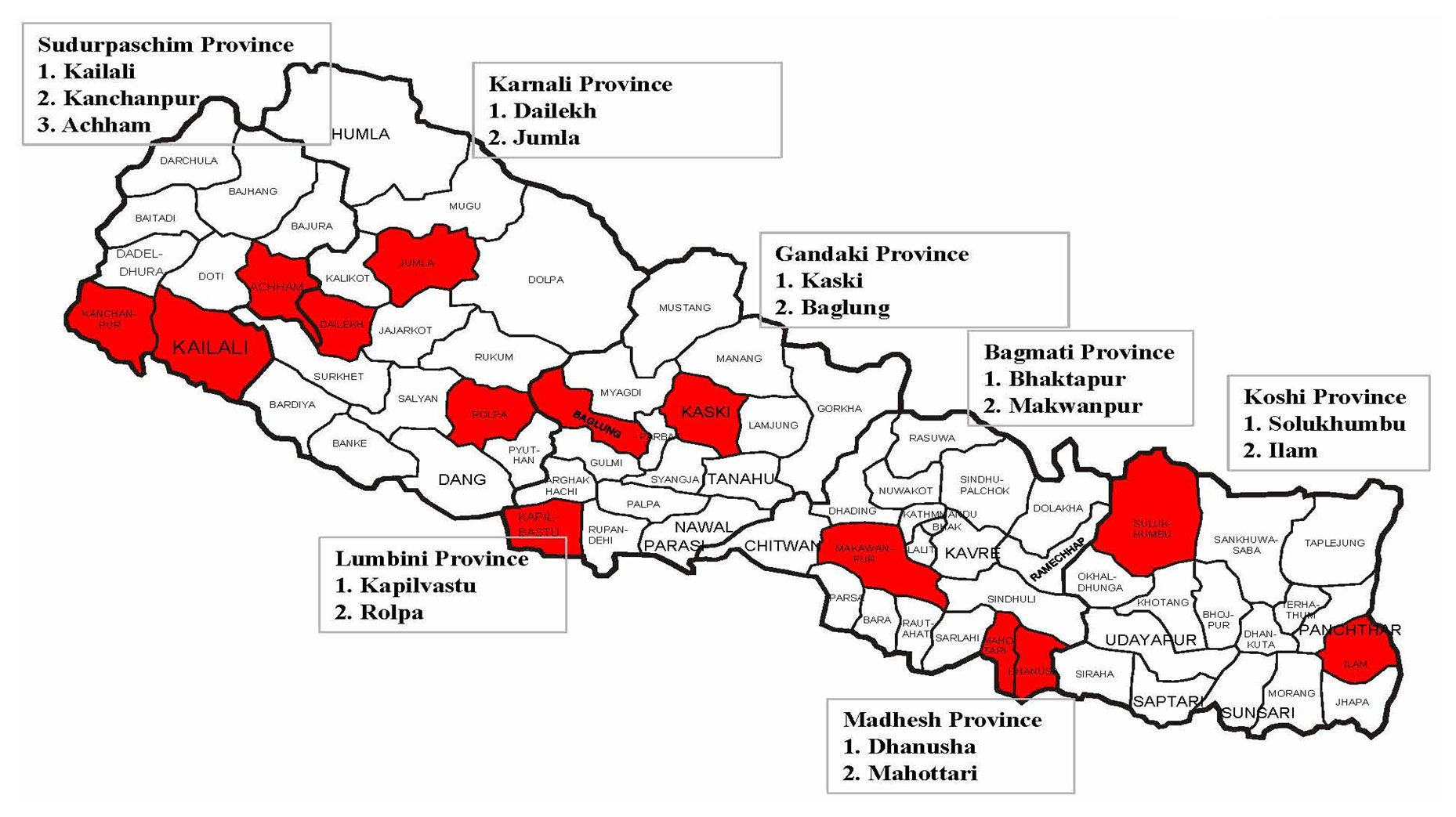
The study explores the origin, diversity and impact of social, cultural and religious menstrual practices in Nepal which deny women and girls the right to a healthy and dignified menstruation. It focuses on promoting women’s right to sexual and reproductive health. Nepal being one of the underdeveloped countries in Asia, the situation of every girls and women calls for this attention for their own right and dignity. The diverse cultural belief and social barriers of traditional customs on ill-menstrual practices is hard to break in different parts of Nepal. DWD aims to put in collaborative effort to create a platform to support girls and women for their rights and create strategies for their voice to be heard to face and overcome such challenges. A workshop organized in 2019 by DWD concluded that educating children on menstruation process from the early age and community dialogues with parents are the key to end the menstruation issues in the country.
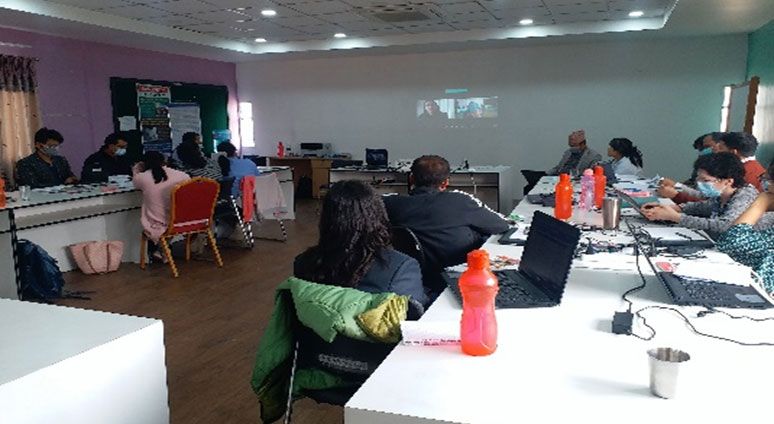
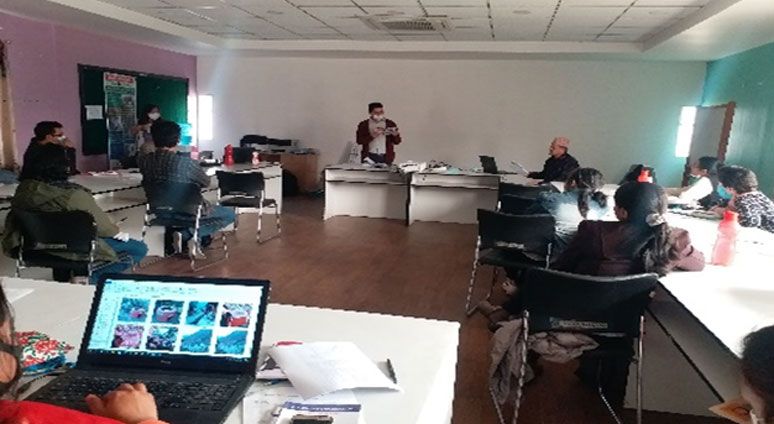
The recent revision in school curriculum to include MHM as a topic from grade 4 to 12 demands supplementary resource materials for children and teachers to make students learning on menstruation inside the classroom with ease. In this scenario GIZ, John Moore University and Global Action Nepal came with the idea of collating all materials and finding the materials gap, developing as per the new curriculum and piloting these existing and new products in different geographical region of the country It has been observed that a rich array of education materials prepared by different organizations, Government agencies Ministry of Education, Ministry of Health and Family planning.
Therefore, the need has been identified to compile and make an index of existing teaching and learning materials around the topic of menstruation in order to provide teachers and health educators a comprehensive choice according to different age group.
The education toolkit thus serves as a support for teachers and students to teach and learn about menstruation in and inter disciplinary way. It will include education materials developed by members of MHMPA during the past years.
Study of The Government curriculum and analyzing gaps
A three day long residential workshop was organized at the Gan Learning and Resource Centre in March 2021 for the assessment of existing available materials and gap identification against the new curriculum from 4-12 grades. A total of 29 participants were present from different organizations including MHMPA members, DWD partners, technical persons working on MHM, government officials. During the workshop, the representatives of the organizations presented their products and get engaged in discussing who it is for and how they will be used in schools or in the community. The discussions were narrowed down to specifying materials for particular level of the new curriculum developed by the CDC. As a result, gaps were identified between existing MHM materials and requirements in the new curriculum
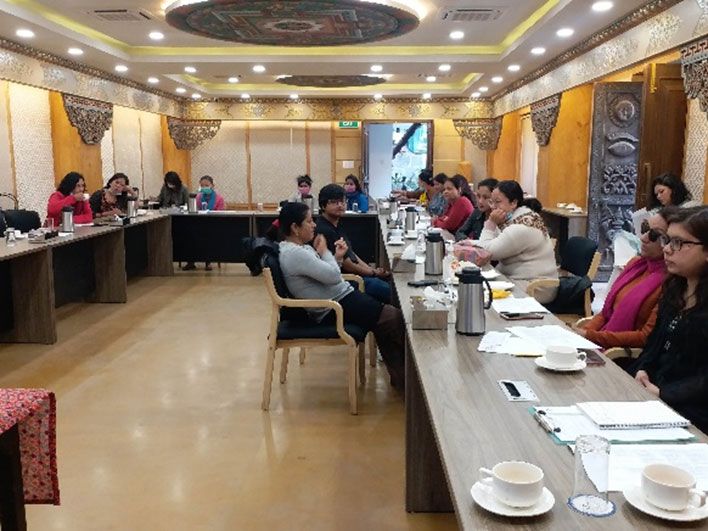
Workshop on assessment of disable friendly materials
Following the workshop assessment of materials and gap identification, a day long interaction program on MHM disable and third gender friendly materials and n new curriculum was carried out on 25 th May 2021. The interaction program was found to be beneficial however, there were no existing MHM related disable and third gender friendly materials are available in the market . It has identified their issues and came with suggestions as given below :. 21 participants were presented in the interaction program.
- Materials should consider gender friendly
- Materials should focus on counseling and psychological support for people related with disability
- Need to include that menstruation also happens to transgender male as well
- The education kit should also consider third gender, transgender, types of disability in the content and examples and if possible with pictures
- Need to advocate for universal designed toilet for uniformity and easy to use for people with disability.
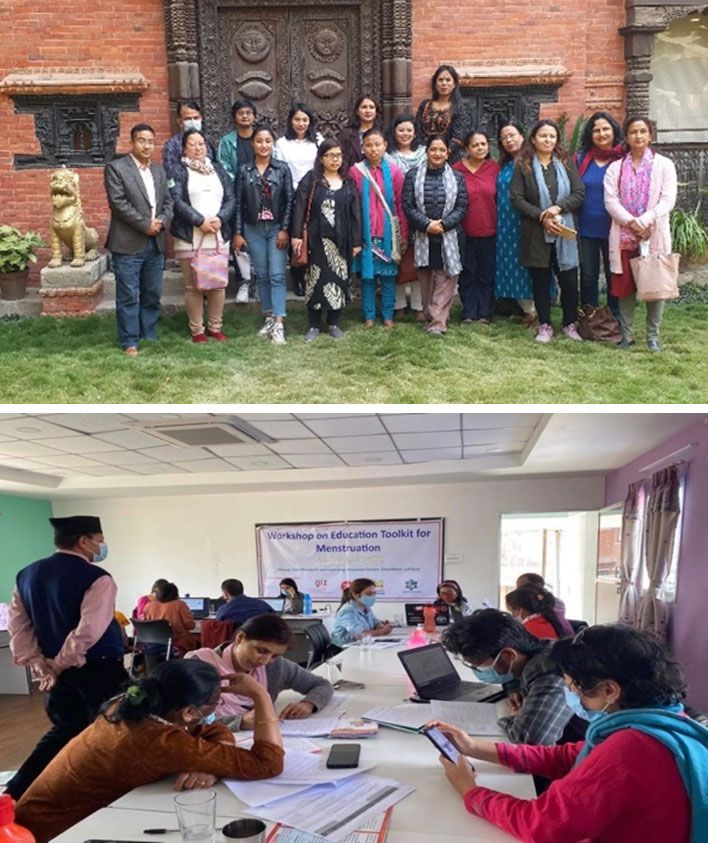
Materials Development
As per the outcome of materials gap identification, a 3 days long residential workshop was organized for the development of materials as required by the curriculum on 10-12 April 2021 at Gan Research and Learning Resource Center, Lalitpur. During the workshop participants were divided into 3 groups as group one was assigned for Grade 4,5, and 6, group 2 was assigned for Grade 7,8, and 9 and group 3 was assigned for Grade 10,11 and 12. All the groups rigorously worked on their assigned task and prepared materials for the tool kit . During the workshop, participants also revisited the outcomes of previous workshop and assessment of existing materials.
A total of 23 participants representing members of MHMPA and partners of DWD were present in the workshop. The materials were produced from 3 different groups.
